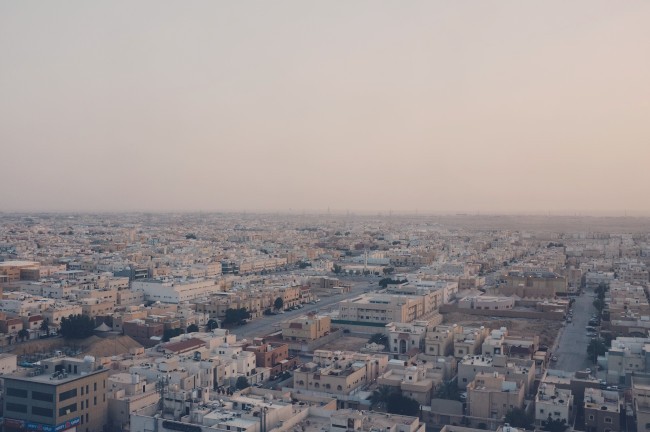The Ministry of Tourism of Saudi Arabia has announced the expansion of the Saudi eVisa program to 6 additional nationalities. Travelers from the following countries can now obtain a tourist visa for Saudi Arabia online: Mauritius Panama Saint Kitts and Nevis Seychelles Thailand Türkiye “The Kingdom welcomes the world by expanding and streamlining the E-visa
3 March 2020
| Post bySaudi Arabia has launched a new multiple-entry visit visa that will be valid for one year and can be obtained on arrival in the country. It will be available to all travelers who have a valid UK, US, or Schengen visa stamped on their passports, including citizens of India and Pakistan.
This marks the first time that Indian and Pakistani nationals have been eligible for a Saudi visa on arrival, albeit only those with a valid US, UK, or Schengen visa.
The visa on arrival is now available under these conditions for Indians, Pakistanis, and other nationalities that would normally have to go to a Saudi embassy to apply for a consular visa.
It is valid for a year and permits multiple visits to Saudi Arabia within this period. The maximum length of any one visit is 90 days.
This multiple-entry visit visa is also valid for Muslim pilgrims performing the Umrah (a non-compulsory pilgrimage to Mecca, which can be undertaken at any time of year).
However, it cannot be used by pilgrims performing Hajj (the most important pilgrimage to Mecca, undertaken on specific dates in accordance with the Islamic lunar calendar), which requires a specific visa.

How Can Indians and Pakistanis Get the Visa On Arrival for Saudi Arabia?
The visa on arrival can be obtained at the immigration counter at any airport in Saudi Arabia once the traveler has disembarked their aircraft.
The fee for the visa must be paid by card, as cash is not accepted.
The traveler’s passport must be valid for a minimum period of 6 months and must bear a stamp signifying they have a valid visa from the United Kingdom, United States of America, or the Schengen Area of Europe.
The UK, US, or Schengen visa must have been used at least once before the Indian or Pakistani traveler enters Saudi Arabia. Travelers who have these visas but have never used them will not be granted a Saudi visa on arrival.
Another prerequisite is that the visitor must have arrived in Saudi Arabia on a Saudi airline, such as Saudi Airlines, Flynas, or Flydeal. This is only necessary for the first visit (i.e. when the traveler applies for the multiple-entry visa on arrival).
Once the traveler has their Saudi multiple-entry visa, they may enter the country on any airline during their subsequent visits.
Visitors from other countries may be eligible to apply for the Saudia Arabia eVisa (electronic visa) instead of the visa on arrival. This can be obtained online. However, nationals of Pakistan and India are currently ineligible for the Saudi eVisa.
All travelers should check worldwide visa information before their trip to ensure they have the correct documentation.
Traveling to Saudi Arabia for the Umrah and the Hajj
Two of the most important reasons for Muslims to visit Saudi Arabia are the pilgrimages of Umrah and Hajj. Both pilgrimages involve visiting the holy city of Mecca.
The Hajj is a mandatory religious duty for all Muslims who are physically able to undertake it. It must be completed at least once in each Muslim’s lifetime. The Hajj occurs from the 8th to 12th of the last month of the Islamic lunar calendar each year.
Travelers completing the Hajj must have a special visa to do so. The new multiple-entry visa on arrival will not permit Muslims from India and Pakistan to enter Saudi Arabia for this purpose.
However, it will allow Muslims to enter the country to undertake the Umrah.
The Umrah is a similar pilgrimage to Mecca. While highly recommended, it is not compulsory for Muslims in the way the Hajj is. It can be done at any time of year and is typically shorter than the Hajj.
Muslim travelers from India and Pakistan who have a valid US, UK, or Schengen visa stamp in their passport will be able to obtain a visa on arrival to complete the Umrah.
Non-Muslims are prohibited from entering the holy cities of Mecca and Medina. Travelers from India and Pakistan of other faiths or who do not practice any religion may only get the Saudi visa on arrival for touristic purposes and may not visit these sacred sites.
When in doubt, it is advisable that all travelers check visa requirements before taking a trip to Saudi Arabia.
Related News
The Tourism Ministry of the Kingdom of Saudi Arabia (KSA) has announced that legal residents of Gulf Cooperation Council (GCC) countries can now apply for a Saudi electronic visa regardless of profession. In September 2022, Saudi Arabia opened the eVisa application to GCC residents who worked in select occupations. However, this requirement has now been
Saudi Arabia’s Ministry of Foreign Affairs (MOFA) has introduced a new e-visa for tourists arriving by cruise ship. The new travel document will allow international visitors to easily enter Saudi Arabia by sea, if they are traveling with an organized cruise. On 2 January 2022, the Foreign Ministry made an announcement on its Twitter page
The government of Saudi Arabia has announced the prices and rules for applying for a visa for Umrah pilgrimage for the 2019-2020 season. Additionally, applications for an Umrah visa for the coming year are now open. Umrah is an Islamic religious pilgrimage to Mecca and can be completed at any time of the year. This



